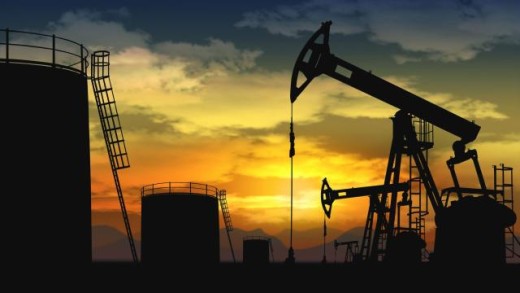Sergio Chapa | Houston Chronicle

The Trump administration has given five energy companies with headquarters or major operations in Houston permission to stay in Venezuela another three months despite harsh economic sanctions designed to unseat strongman Nicolas Maduro.
In a Monday afternoon decision, the U.S. Treasury Department on Monday granted waivers to Chevron, Schlumberger, Halliburton, Baker Hughes and Weatherford — allowing them to continue to do business in the crisis-ridden South American nation until Jan. 22.
Seeking to remove Maduro from power, the Trump administration has imposed a series of sanctions over the past two years, which, among other things, prohibit buying Venezuelan crude oil and conducting financial transactions with the Venezuela government or its state-run oil company Petroleos de Venezuela SA, or PDVSA.
Chevron and the other companies have been able to stay in Venezuela through waivers and licenses issued every three to six months by the Treasury Department. Until Monday’s renewal, the licenses were set to expire on Friday.
Service Sector: Houston companies caught in political tug-of-war over Venezuela
Facing frequent power failures, theft of equipment and other deteriorating conditions in Venezuela, Chevron and the other four companies are trying to maintain business connections and access to the world’s largest proven oil reserves, which hold a valuable type of heavy crude that is prized by refiners and easily extracted by conventional and less expensive forms of drilling.
With the Russian oil company Rosneft and China National Petroleum Corp. making an aggressive push in the South American nation at the invitation of Maduro, energy executives and analysts fear that the Russians and Chinese would dominate the Venezuelan oil sector if the American companies leave.
Francisco Monaldi, a Latin America energy expert with Rice University’s Baker Institute, said this and other last-minute renewals of the waivers demonstrate how the Trump administration is divided over approach to Venezuela. If the licenses had not been renewed, Chevron and the other companies would have forced to immediately leave the oil-rich South American on Friday.
“This is again a short term extension that appears to be a compromise between those who wanted to apply maximum pressure and those that think not renewing it would only lead to ceding spaces to the Russians with little impact on regime change,” Monaldi said.
Fuel Fix: Get daily energy news headlines in your inbox
Plagued by political and economic crises that have created shortages of food, medicine and other basic necessities, millions of Venezuelans have fled the country, once one of the wealthiest in Latin America.
Venezuelan crude output has plunged from 3 million barrels a day in 1999 down to 885,000 barrels a day in June, according to the U.S. Energy Department.
Schlumberger, Halliburton, Baker Hughes and Weatherford remain in Venezuela to support drilling operations for a joint venture between Chevron and PDVSA.
But it has not been easy to stay. Schlumberger, Halliburton and Weatherford have recorded a combined $2.1 billion in write downs, impairments and other losses in Venezuela over the past two years. Chevron reported a $21 million loss from its Venezuelan operations during the second quarter.
“Chevron is a constructive presence in Venezuela, where we have been part of the local communities for nearly a century,” company spokesman Ray Fohr said in a statement. “We remain focused on our base business operations and supporting the more than 8,800 people who work with us and their families. Our operations continue in compliance with all applicable laws and regulations.”
Guillermo Zubillaga, an expert on Venezuela with the New York think tank Americas Society/Council of the Americas, said that allowing Chevron and other companies to stay is positive for long-term reconstruction efforts.
“It’s more immediately positive for the workers and their families who rely on these operations to survive,” Zubillaga said. “With the already dwindling production, it was going to be a costly long-term move for an upside that wasn’t clear. The challenges for the US companies remain though and will likely increase in complexity and quantity. I’m talking about lack of skilled labor, theft, communications, storage and lack of power.”
Read the latest oil and gas news from HoustonChronicle.com
Bron: Chron

